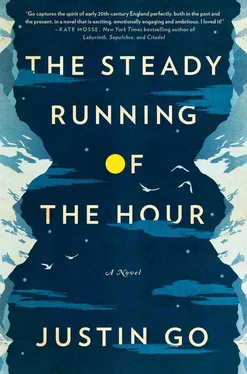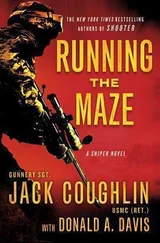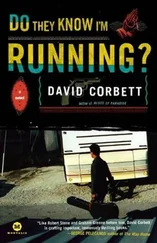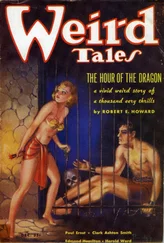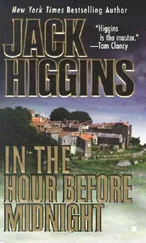— Don’t you see? Those are the steps on the ridge. But they’re on the wrong side.
— You’re right, Ashley says. But let’s be off.
Price shakes the match out and drops it into the dust. He follows Ashley down the dim corridor.
— It isn’t pointless, Price whispers.

I’m up before dawn in the hostel dormitory, packing my backpack as quietly as I can. It’s Tuesday and the estate will pass on Thursday; I can’t stay in Reykjavík any longer. I know my leads are worthless: the jeweler Ísleifur Sæmundsson who was born in Seyðisfjörður, the nineteen-year-old Charlotte Derby listed on a steamer bound for Eskifjörður. But both those towns are in the Eastfjords and I’d rather go after something than nothing at all.
A young Norwegian snores on the bunk above me. I wrap my spare clothes protectively around the folder holding the letters, then stuff my sleeping bag and books and toiletries into the backpack, cramming a plastic bag of food into the top.
Outside at the bus stop I wait for a long time. When the bus finally arrives I take a window seat, riding among sober commuters half-dozing or reading the newspaper. We travel north toward the suburbs, passing bright red and yellow houses with shining steel roofs. The clouds to the east are burning off with the rising sun.
I take The Icelandic Sagas from my bag and page to the introduction.
The world of the Icelandic Sagas is complex and multi-layered, with the same agents alternately acting as forces for good or evil. The writing style tends towards the terse and impersonal, with little explanation of why events occur. Things happen; fate is rarely questioned. Personalities are shown through action, seldom through analysis. Relationships between individuals are complex, defined by friendship, blood, marriage, and immediate geography.
Certain themes define the Sagas, particularly the contending forces of character, honor, and luck. These devices compete to determine the outcome of the story. Characters must often and at great disadvantage overcome fantastic enemies. Life is short and uncertain; men’s worth is determined by glory in arms. Any slight to one’s honor or that of one’s family must be avenged, whether by blood or money. Men are easily goaded to fatal violence over a perceived insult.
The supernatural plays a major role as well. Oneiric elements are often featured, frequently in the guise of prophetic dreams. The concept of luck is simple, particularly as portrayed in Njál’s Saga : one is born with a certain store of luck. When that luck runs out, one is doomed.
However subtly it may be posed, a critical question faces the protagonists of the Sagas. Do they have the character to surmount their difficulties, or do they succumb to the vices of avarice, jealousy, pride or cowardice?
The bus approaches the end of the route, the remaining passengers exiting at the final stops until I’m alone. The driver eyes me through his rearview mirror. The bus makes a series of sharp turns and halts in a parking lot. All the doors swing open.
I walk off in the direction where I hope to find the ring road, the main highway that circles the whole island, running along the north coast to the Eastfjords and curving back along the south. I take out my free tourist map of Reykjavík and examine the city’s northern periphery, orienting the sheet with my antique compass. The part of the ring road I’m trying to reach is covered by an ad for glacier tours of Vatnajökull.
— You couldn’t even call this hopeless, I whisper.
I fold up the map and search for the highway by instinct. An hour of wandering brings me to a long entrance ramp; I choose a spot at the base where I’m visible for some distance and there’s a wide shoulder to pull over. I stand up straight and extend my thumb, thinking of my haggard appearance: an army-surplus parka, worn brown pants and muddy sneakers, an enormous backpack. I’ve never hitchhiked before.
The cars speed by at forty miles an hour, punching gusts of wind at me. I don’t look at the faces of the drivers. A sedan passes and its brake lights go red. I swing my bag over my shoulder and sprint up the road.

The first man who picks me up is tall and gangly, his cropped hair graying at the edges. He says he is a troubadour, a traditional entertainer in Icelandic song, and he bellows a few bars as proof of this. His voice is deep and impressive.
— Do you believe me now?
— I do.
The troubadour repairs credit card readers on gas station pumps throughout the country. He is from the Vestmannaeyjar, an archipelago off the southern coast.
We drive through green and rolling hills. The road twists and climbs to higher ground where the moss and dirt have been dusted in soft new snow. There are few other cars.
— The first snow of the year, he murmurs.
The troubadour sings folk songs to pass the time, his huge hands gripping the steering wheel. He tells me the grim tale of a serial killer who picked up hitchhikers.
— Maybe you’re the killer, he says, winking at me. But maybe I am.
We stop at a service station straddling the junction of two roads. The troubadour is going the other way. We go into the convenience store and he offers to buy me a hot dog three times before he accepts that I don’t want one. His generosity makes me embarrassed about how sorry I’ve been feeling for myself. He asks the man behind the counter for a piece of paper and writes down his phone number. He slides the paper toward me, patting a huge hand on my back.
— You should be able to get another ride here. Call me if you get into trouble.

The town of Akureyri lies on the north coast of Iceland about halfway between Reykjavík and the Eastfjords. I get there after nightfall, riding in a young woman’s station wagon along a narrow inlet of dark water, the dim lights of the town reflected below. The woman drops me off at the youth hostel. I’d like to keep going, but I doubt anyone picks up hitchhikers at night.
Akureyri has six thousand inhabitants and feels even smaller than that. The bearded clerk at the youth hostel sits behind the counter turning the knob on an ancient color television. I put my passport on the counter and ask for a hostel bed.
— Took the bus up here?
— I hitchhiked.
The clerk raises his eyebrows, tossing a room key on the counter.
— You’re the only one here.
I ask if I can make a collect call. The clerk passes an old rotary phone across the desk. He interrupts his television viewing to stare at me as I ask the operator if I can be connected to England. The secretary at Twyning and Hooper recognizes my voice at once. I’m transferred to Prichard.
— The elusive Mr. Campbell, Prichard says. You’re quite the enigma here. Even Geoffrey can’t explain what you’re doing in Iceland.
— She was here. I know she was here.
— If you’ll excuse me, Prichard sighs, you don’t know that for certain. This brooch of yours proves nothing. Have you found any other evidence?
— Nothing watertight—
— Mr. Campbell, you’ve only two days left. And I cannot see how this brooch, or anything in Iceland for that matter, will lead to evidence that connects you to Ms. Soames-Andersson.
— It’s all part of the same problem. And it’s all I’ve got to follow.
— No doubt it is, but you won’t solve all this by Thursday. In view of that, we’ve prepared certain arrangements. You recall that I’m forbidden to give details of the Walsingham trust except as necessary. But I can reveal to you now that the standard of evidence required for distribution of the estate is more — flexible, shall we say, than you may believe. In short, we may be able to get somewhere with what you’ve already found.
Читать дальше
